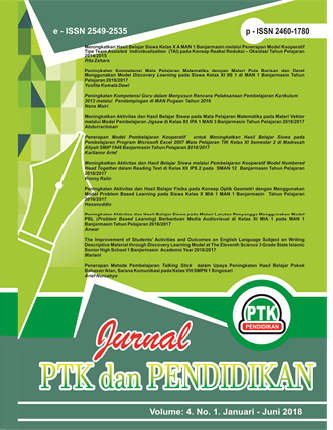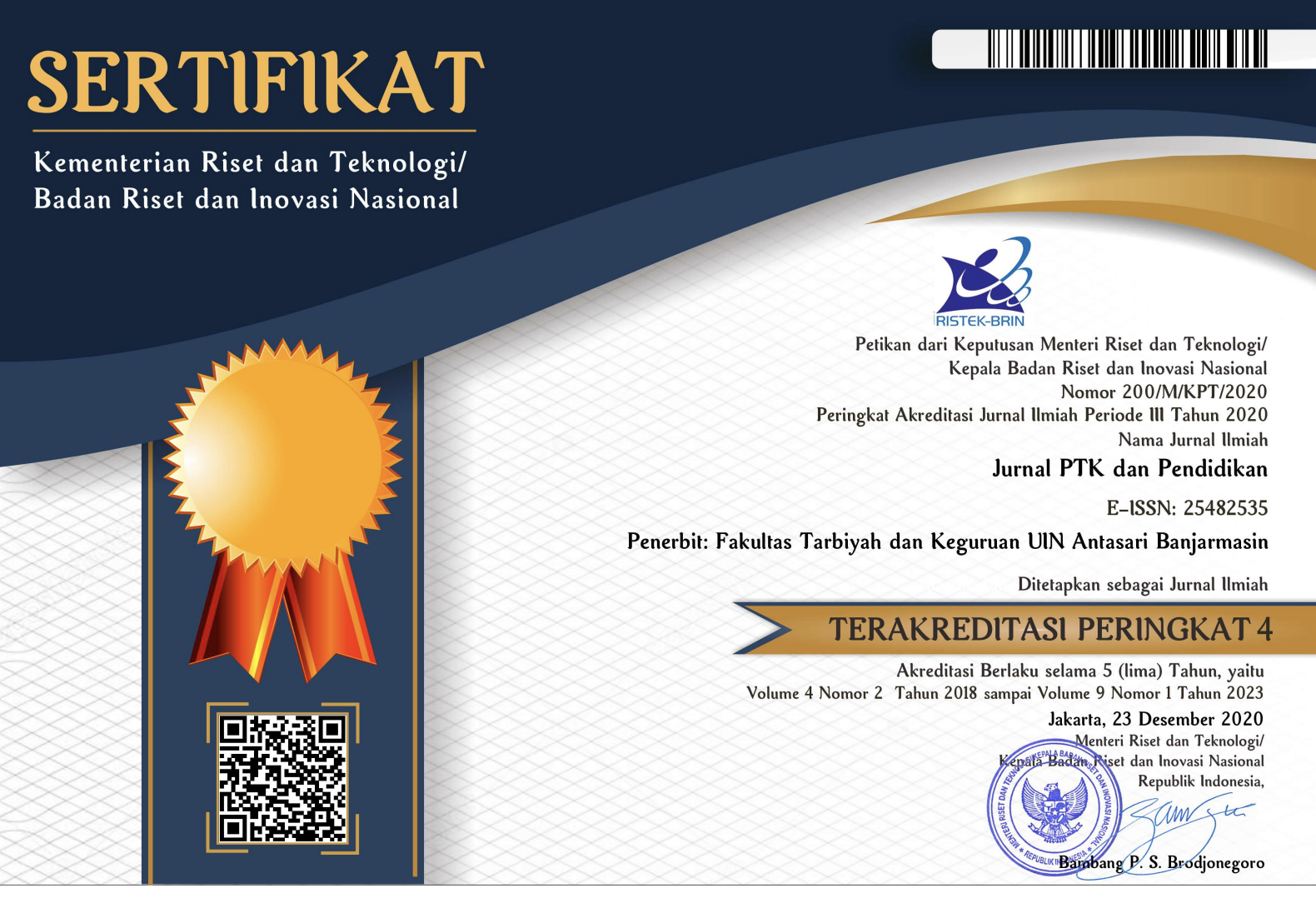Peningkatan Kompetensi Guru dalam Pengembangan RPP Kurikulum 2013 Melalui Asistensi di MAN Pugaan Tahun 2016
DOI:
https://doi.org/10.18592/ptk.v4i1.2076Abstract
Learning planning is incorporated into the Lesson Plans (RPP) or some other terms such as instructional design, learning scenarios. RPP contains KI, KD, indicators to be achieved, materials to be learned, learning steps, learning media, and learning resources and assessment. Problems that happened many teachers who have not understood and motivated in preparing the Curriculum Learning Implementation Plan 2013 completely. Most teachers did not received training in curriculum development in 2013. This research aims to improve teacher competence in preparing the Learning Implementation Plan through assistance in MAN Pugaan (KabupatenTabalong). Method used in this research is School Action Research that conducted through two cycles. Subjects are teachers of MAN Pugaan amounted to 27 teachers of civil servants and non-civil servants. The results is in cycle I the mean value of RPP component was 69% and in cycle II 83%. So, there was an increase of 14% from cycle I.References
Depdiknas. 2004. Standar Kompetensi Guru Sekolah Dasar. Jakarta: Depdiknas.
Dewi, Kurniawati Eni. 2009. Pengembangan Bahan Ajar Bahasa Dan Sastra Indonesia Dengan Pendekatan Tematis. Tesis. Surakarta: Program Pascasarjana Universitas Sebelas Maret
Depdiknas. 2003. UU RI No. 20 Tahun 2003 tentang Sistem Pendidikan Nasional. Jakarta: Depdiknas Depdiknas. 2003. UU RI No. 20 Tahun 2003 tentang Sistem Pendidikan Nasional. Jakarta: Depdiknas
Permendiknas No 103 tahun 2014 tentang pendidikan Dasar dan pendidikan menengah
Sudjana, Nana. 2009. Standar Kompetensi Pengawas Dimensi dan Indikator. Jakarta : Binamitra Publishing.
Downloads
Published
How to Cite
Issue
Section
License
- The right to publication of all journal material published on the Jurnal PTK dan Pendidikan website is held by the editorial board with the author's knowledge (moral rights remain the property of the author).
- The formal legal provisions for access to digital articles of this electronic journal are subject to the terms of the Creative Commons CC BY 4.0 DEED Attribution International (CC BY) license. This license enables reusers to distribute, remix, adapt, and build upon the material in any medium or format, so long as attribution is given to the creator. The license allows for commercial use.
- Printed and electronic published manuscripts are open access for educational, research and library purposes. In addition to these objectives, the editorial board shall not be liable for violations of copyright law.







